Come and hear what’s new. Each quarter there’s a chance to gather, have a drink, and hear from a historian about their research. Sometimes it will be a PhD candidate, and sometimes it will be a leading researcher in their field. There’ll be a chance to ask our guest speaker probing questions.
We’ll also let you know about other important information here too.
November
November Meeting In-person 25WW C120X Function Room, Level 1, Building C, Friday 7th November 2025 commencing at 7pm.
The End of Year/Christmas Function will be held in 25WW C120X Function Room, Level 1, Building C on Friday 7th November 2025 commencing at 7pm. There will be a talk by Paul McKechnie on the theme: In the steps of David Livingstone – Christianity and the classics in Malawi.
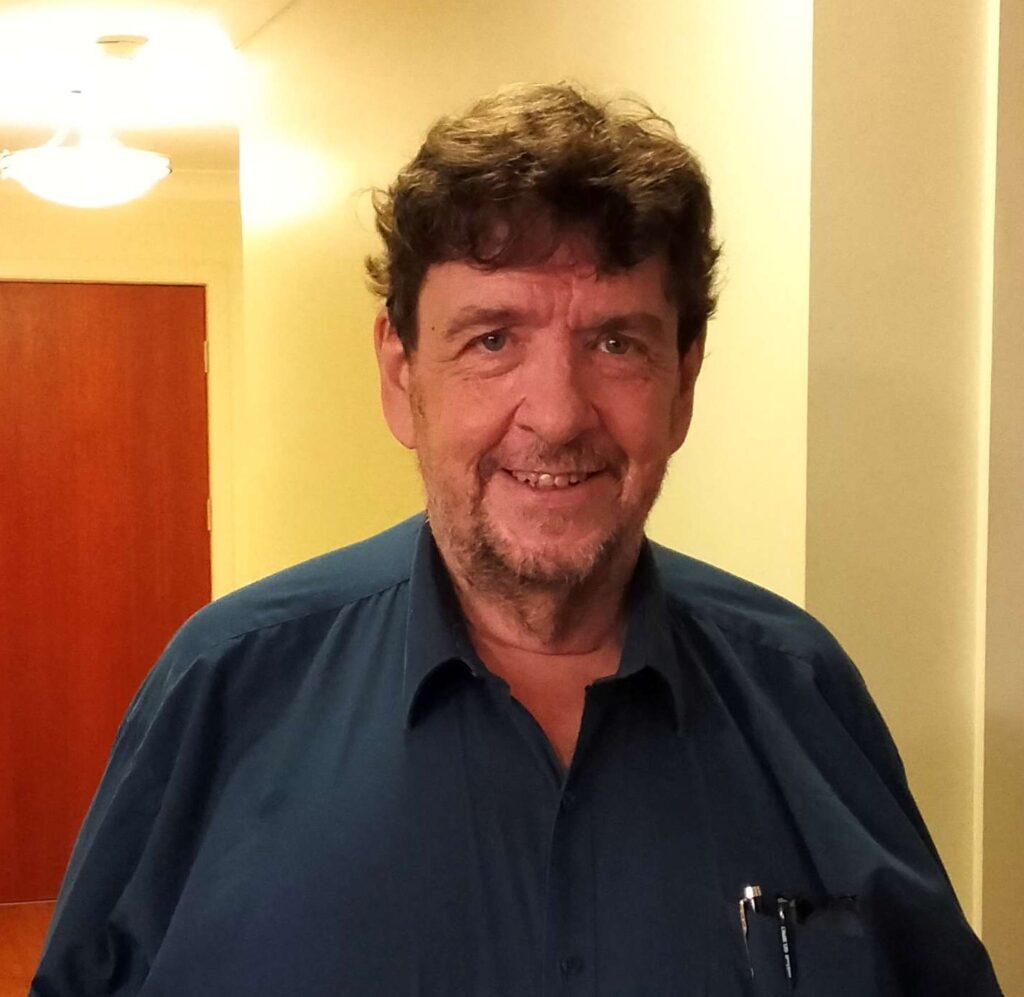
AGM via Zoom, Tuesday 4th November 2025, 7pm (AEDT).
To participate please email our SSEC secretary for a zoom link at ssec@mq.edu.au
August Meeting via Zoom Tuesday 5th, 7:00 PM (AEST)
We are hosting a talk by Mark Matic, Macquarie Graeco-Roman Travelling Scholar (2024/25) on Tuesday, August 5, 2025 07:00pm via Zoom:
“Insights from the Periphery: Exploring Hellenistic Language and Identity in Biblical Translations, Ptolemaic Contracts and Dalmatian Inscriptions“
To participate please email our SSEC secretary for a zoom link at ssec@mq.edu.au
The recovery and digitisation of non-literary documents have greatly enriched the study of ancient cultures. This is especially true for the Hellenistic Period, when Greek became the lingua franca of various communities from the shores of the Western Mediterranean to the mountain ranges of Bactria. The thousands of preserved inscriptions and papyri afford us unprecedented insight into the lives of individuals and groups from across the social spectrum. Most plainly, they disclose the language(s) that people used to navigate different social interactions, from the most intimate and informal (e.g. private letters to friends and family) to the technical and ceremonial (e.g. contracts, administrative reports, and decrees). To fully exploit the data preserved in these documents, the historian must become a sociolinguist and consider the different registers employed (regiolects, sociolects, jargons, etc.). Documentary texts have traditionally fallen outside the corpus of the classicist. Despite their less intricate structures and themes, they present a challenge to students of ancient literature, often preserving distinctive grammatical and lexical features. That is not to say that documents have nothing to offer discussions of great works. On the contrary, the language and cultural context of even the most mysterious compositions, such as the Book of Revelation, become clearer and richer when studied alongside contemporary, non-literary writing.
This lecture examines three understudied corpora as evidence for social developments in the Hellenistic and early Imperial periods: the biblical translations collectively known as the Septuagint, the Ptolemaic contracts of Hermias of Pathyris, and the earliest inscriptions of the Dalmatian colonies (e.g. the Lumbarda Psephisma). Each corpus speaks to the multicultural, multilingual and ‘glocal’ character of its community of origin. By comparing their language with that of contemporary texts, we may expand upon and challenge existing historical narratives and conceptions of ancient Hellenism.
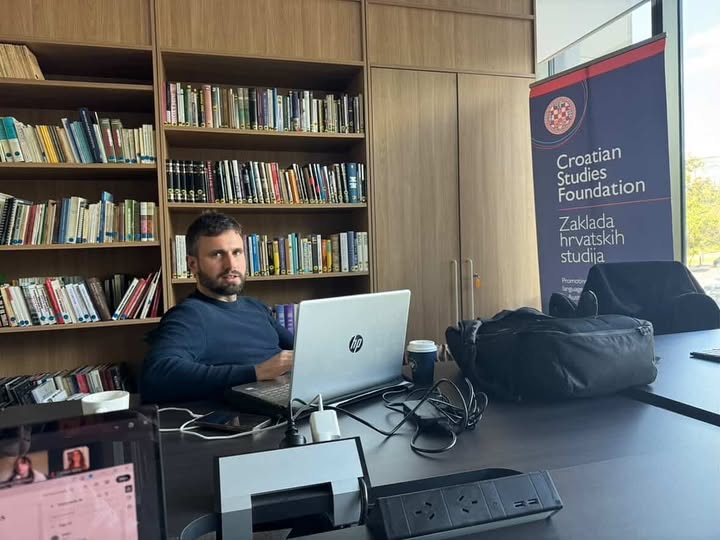
Mark Matic is a doctoral candidate at Macquarie University and a casual lecturer in the Latin and ancient Greek languages at Macquarie and Campion College respectively. His research examines the language of 2 Esdras and similar biblical texts in light of Postclassical developments and the wider history of Greek. Mark was awarded the Macquarie University Medal and Patricia Geidans Prize in 2024 for his MRes thesis on a similar theme. He is the 2024–25 recipient of the Macquarie Gale Graeco-Roman Travelling Scholarship for the project “Insights from the Periphery: Exploring Hellenistic Language and Identity in Biblical Translations, Ptolemaic Contracts and Dalmatian Inscriptions.” The project saw Mark collect and present ancient linguistic data in London, Cambridge,Ghent and Zagreb. Together with Samuel Wessels and A/Prof. Trevor Evans of Macquarie, and with the generous support of the SSEC, Mark will host the second international conference of “The Septuagint within the History of Greek” network at the Chau Chak Wing Museum, University of Sydney, on the 27th–29th of August 2025. For further information about the conference, please email SHG25@mq.edu.au.
June Meeting via Zoom Tuesday 24th, 7:00 PM (AEST)
Dr Ali Robinson will speak on “High-Standing Women in the Book of Acts and Their Influence among the Synagogues of the Greek East.“
To participate please email our SSEC secretary for a zoom link at ssec@mq.edu.au
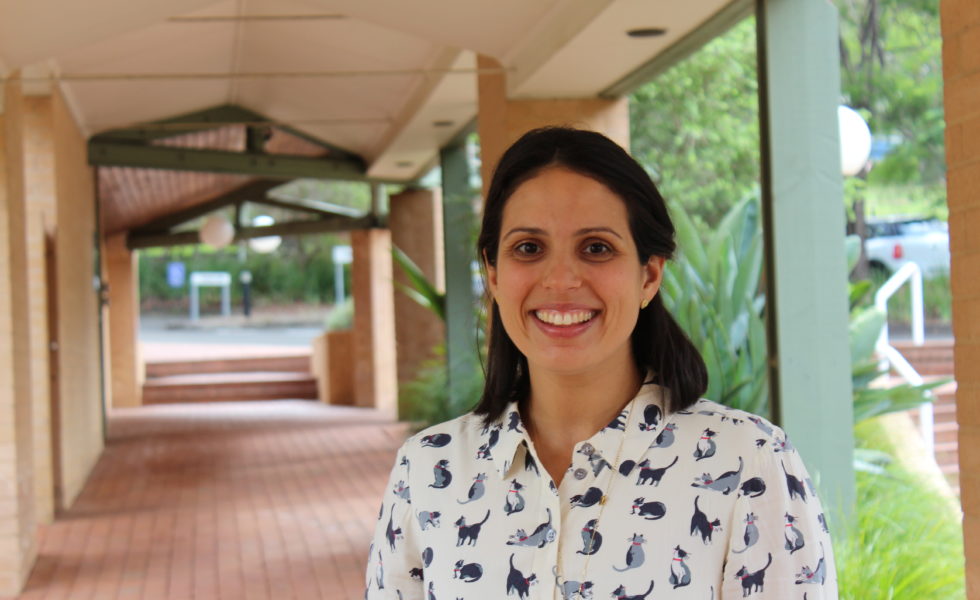
This paper highlights the role and status of elite women referred to as εὐσχήμων (noble or high-standing) in Acts 13:50 and 17:12. Through analysis of documentary evidence from Asia Minor and the broader Greek East, the study argues that Luke adapts honorific language traditionally reserved for elite men of the bouleutic class to describe women who
wielded social and religious influence within their communities—especially within synagogue contexts. A survey of the term εὐσχήμων in private and public inscriptions shows a shift in how this term is used for women during the imperial period. While it may be assumed that women in the ancient world were predominantly marginalised or powerless, in reality women associated with wealthy families or high-ranking husbands often held visible and influential civic and religious roles. It is the argument of this paper that it is precisely these women who are called upon by the synagogue communities of Acts 13 and Acts 17 and serve as key intermediaries in the reception or rejection of early Christian teaching. By highlighting their influence, this study repositions these women as active agents in early Christian history, contributing to a more nuanced understanding of gender and status in the ancient world.
Dr Robinson’s postgraduate study began at St Mark’s National Theological Centre analysing the relationship between the Epistle of Jude and the book of Enoch. She carried out her doctoral work at Macquarie University on the harsh rhetoric of Jude’s epistle in relationship with Jewish woe oracles and Greco-Roman invective. This research led to the publication of her monograph with T&T Clark and subsequent articles on harsh rhetoric in both Jude’s epistle and the gospel of John, published through New Testament Studies, Novum Testamentum, and the Journal of Greco-Roman Christianity and Judaism. She lectures in New Testament at United Theological College, Parramatta, Sydney.
Upcoming Events
On Tuesday, August 5, at 7pm (Zoom), Mark Matic will be speaking on “the topic “Insights from the Periphery: Exploring Hellenistic Language and Identity in Biblical Translations, Ptolemaic Contracts and Dalmatian Inscriptions.“
On Thursday, October 23 at 7pm (Zoom) Dr Michael Zellmann-Rohrer will share his talk “Christian Horoscopes on Papyrus.”
Our Christmas Function will be held in person on Friday November 7, commencing 7pm in Function Room C120 Exhibition Space, Level 1, Building C, Arts Precinct, 25 Wally’s Walk. Our speaker will be Assoc Professor Paul McKechnie, on the topic: The legacy of David Livingstone: Christianity and Classics in Malawi.
March Meeting via Zoom Monday 10th, 7:00 PM (AEDT)
Professor Paul Oslington will speak on “Biblical texts and their afterlife. What can we learn from the history of usury?“
To participate please email our SSEC secretary for a zoom link at ssec@mq.edu.au

Professor Paul Oslington is a member of the faculty of Alphacrucis University College. Previously, he held a Chair jointly in the School of Business and School of Theology at Australian Catholic University from 2008-2013, and Associate Professor of Economics at the University of New South Wales. He held visiting positions at the University of Oxford in 1999, the University of British Columbia and Regent College Vancouver in 2003, Princeton Theological Seminary and University in 2006-2007, and the Center of Theological Inquiry Princeton in 2020.
Professor Oslington is the author a number of works on economics and economics and religion. His most recent monograph is Political Economy as Natural Theology: Smith, Malthus and their Followers. Routledge, 2018.
October 2024 Meeting via Zoom Tuesday 15th, 7:00 PM (AEDT)
Dr Bernard Doherty will speak on “Getting Blood from a Stone Epigraphic Evidence for the Persecution of
Christians in Roman Asia Minor.”
To participate please email our SSEC secretary for a zoom link at ssec@mq.edu.au
Abstract
One of the surprisingly neglected sources of evidence in the study of the early Christians persecutions has been the evidence found in inscriptions. While documentary studies and of the papyrological evidence for persecution have been collected and analysed, far less work has been done collecting and systematising comparable epigraphic evidence. While Christians were eager participants in what has been called the Roman epigraphic habit, their inscriptions have often been unvalued by scholars studying the early church. This paper will introduce a series of important inscriptions which have survived from Asia Minor related to the persecution of Christians during the third and early fourth centuries and provide a preliminary analysis of what these inscriptions can tell us about the local dynamics of persecution in that region.
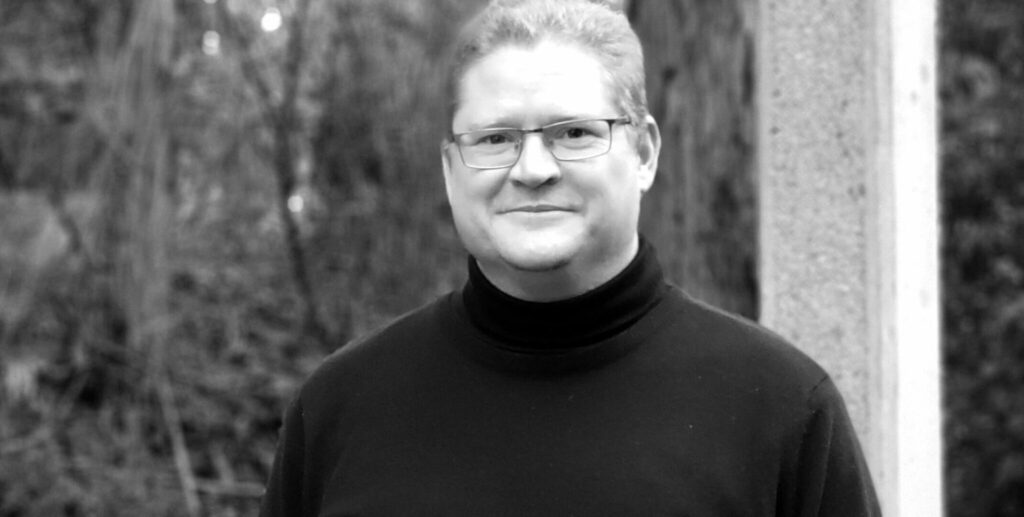
Dr Bernard Doherty is a Macquarie University graduate and is now the Course Director in the School of Theology and a Research Fellow for the Centre for Public and Contextual Theology at Charles Sturt University based at St Mark’s National Theological Centre in Canberra.
Special In Person Event (will be streamed)
6.30pm to 9pm in Language Room C227, 25 Wally’s Walk (see campus map). It will be streamed but we’d love to see you in person if you can make it.
*Location* Park in P WEST 3 outside the Arts Faculty building.
If you would like to attend in person then please RSVP to our secretary by Monday 15th July: ssec@mq.edu.au
If you would like to stream then please email our secretary for the zoom link: ssec@mq.edu.au
Professor James F. McGrath is Clarence L. Goodwin Chair in New Testament Language and Literature of Butler University, Indianapolis, Indiana will speak on:
Merry Baptistmas? Recovering a Lost Ancient Infancy Narrative and What it Tells us about John the Baptist
The Gospel of Luke is not our only ancient source about the parents of John and Baptist and his childhood. In this talk Prof. James McGrath shows how it is possible to detect an even more ancient story that influenced both Christian and Gnostic traditions.
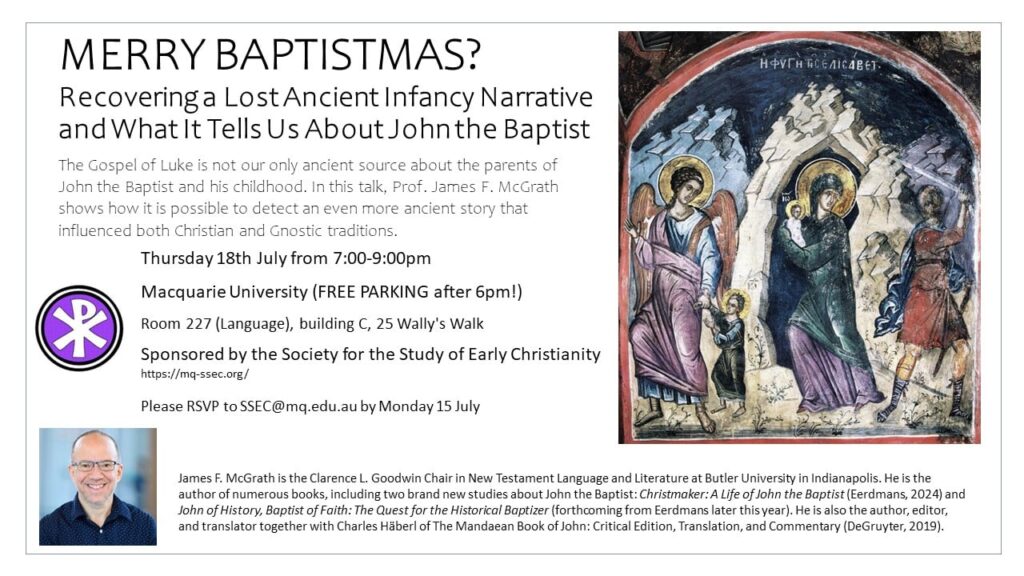
Calendar of Meetings for 2024
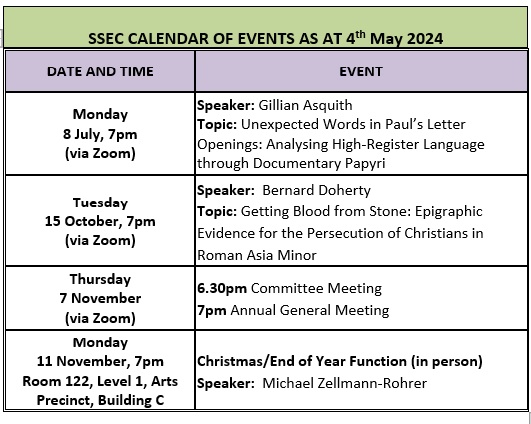
March 2024 Meeting via Zoom Thursday 21, 7:00 PM (AEDT)
Danijel Dzino will be speaking on the Macquarie University excavations on Bribirska Glavica (2014-2019) in context of early Christianity in Dalmatia.
This lecture will provide an outline of early Christian period in Dalmatia until ca. 600 AD, with particular emphasis on Late Antique/Early Christian layers uncovered by Macquarie University excavations on Bribirska Glavica (ancient Varvaria) in Croatia from 2014 to 2019. Main outcome of the excavations is discovery of large early Christian rotunda, built around 500 AD and uncovering of earlier built early Christian crypt with sarcophagi, which was renovated and extended at the times when rotunda was built.

Email the SSEC secretary (ssec@mq.edu.au) for the zoom link by Tuesday 19th 5pm. Members can find the zoom meeting details in the Members’ Only Portal (password required)
September Meeting via Zoom Monday 18th of September, 7pm
Email the SSEC secretary for the zoom link by Monday 5pm. Members can find the zoom meeting details in the Members’ Only Portal (password required)
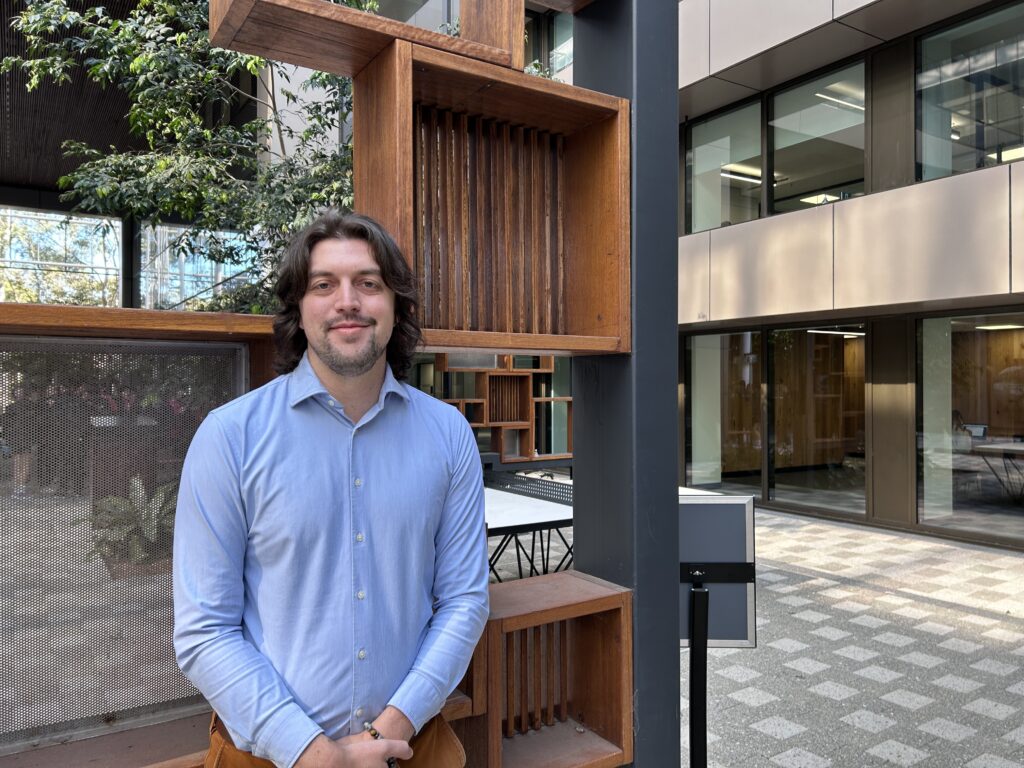
Julien Cooper will be speaking on
“Pagans par excellence? Evidence for Christianity amongst the Blemmyean nomads of Eastern Sudan”.
Abstract:
The story of the “rise of Christianity” is well documented across the major states of late antique Northeast Africa, from Coptic Egypt, Christian Nubia, and the Aksumite state of Ethiopia. However, the story of Christianity as adopted by “peripheral” nomadic groups living in the desert margins of the Nile basin is largely speculative, or left wholly untold. Motivated by archaeological surveys in Eastern Sudan, the heartland of the ancient Blemmyean nomads, this paper will shed light on this undocumented “theatre” of the Christian world. Given to be somewhat unexpected Christian adherents due to their being characterized as a “pagans” in Coptic literature, there is a surprising variety of evidence attesting to the adoption of the Christian faith by individual Blemmyes or Blemmyean lineages. This paper will attempt to harmonize this evidence into a putative model for the adoption of Christianity in such nomadic social settings, also chronicling the eventual demise of Christianity in Eastern Sudan after a long history of cultural contact and entanglement with the wider Arab-Islamic world.
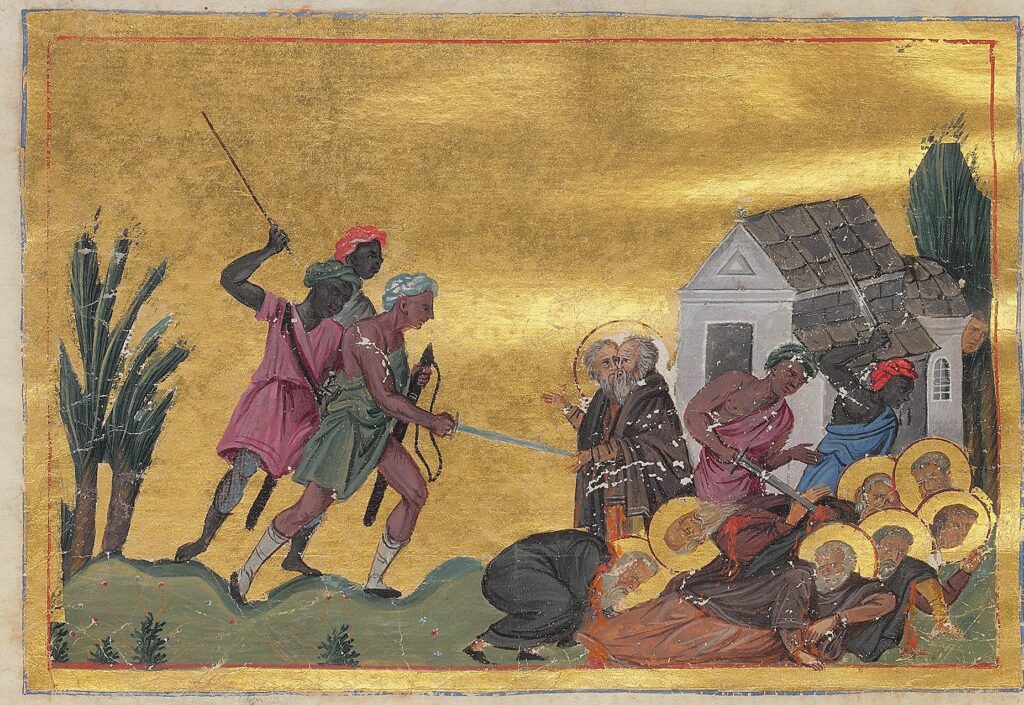
About Julien:
Julien Cooper is an archaeologist and Egyptologist who graduated from Macquarie University (2016). Since then he has held postdoctoral fellowships at Oxford and Yale universities, most recently teaching ancient history and archaeology at United International College-Beijing Normal University (Zhuhai, China). He rejoined Macquarie University in 2023 on the Theban Tomb Project, recently obtaining ARC Future Fellowship. Julien’s research focuses on the archaeology and history of Nubia (ancient Sudan), with an interest in ancient nomadism and desert surveying. He directs a project in Eastern Sudan, the Atbai Survey Project, a large field survey investigating an under-explored desert filled with goldmines, rock art, and nomadic camps, a research theme that is the subject of his Future Fellowship.
June Meeting via Zoom 20th June, 7pm (AET)
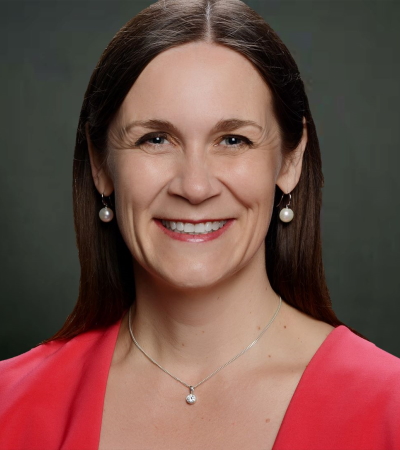
Edwina Murphy will be speaking on “Imitating the Devil: Cyprian on Jealousy and Envy.”
“According to Cyprian, bishop of Carthage in the mid-third century, jealousy and envy are dangerous vices which lead to the destruction of innocent lives. Christians must avoid these and instead pursue peace and unity, imitating Christ rather than the devil.”
TO JOIN THE MEETING Please send your request to join to Karyn Young ssec@mq.edu.au.
March Meeting via Zoom 7th March, 7pm (AEDT)
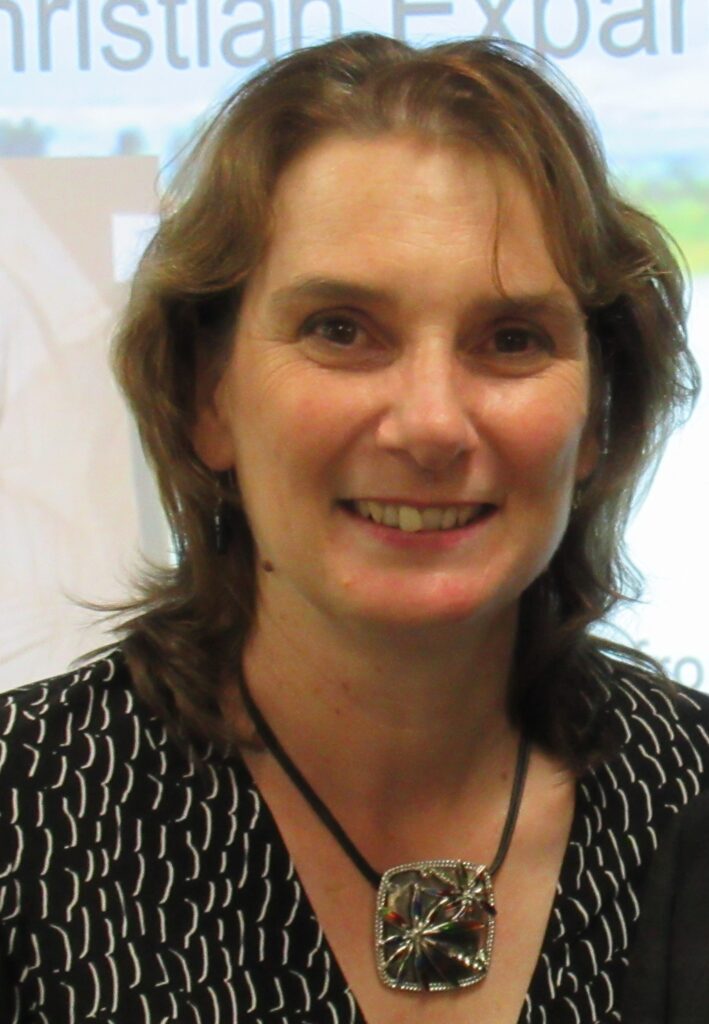
The first SSEC talk for 2023 is by Lyn Kidson. She was the the Macquarie Gale British School in Rome scholarship for 2021 for her project “Coins of the New Testament world: the intersection between early Christianity, imperial ideology, visual communication and the Roman economy.” At this SSEC meeting she will be discussing the minting operations in Rome under the Flavians and the production of the Capta Judaea coins, which advertised the squashing of the Jewish rebellion by Vespasian and Titus.
TO JOIN THE MEETING Please send your request to join to Karyn Young ssec@mq.edu.au.
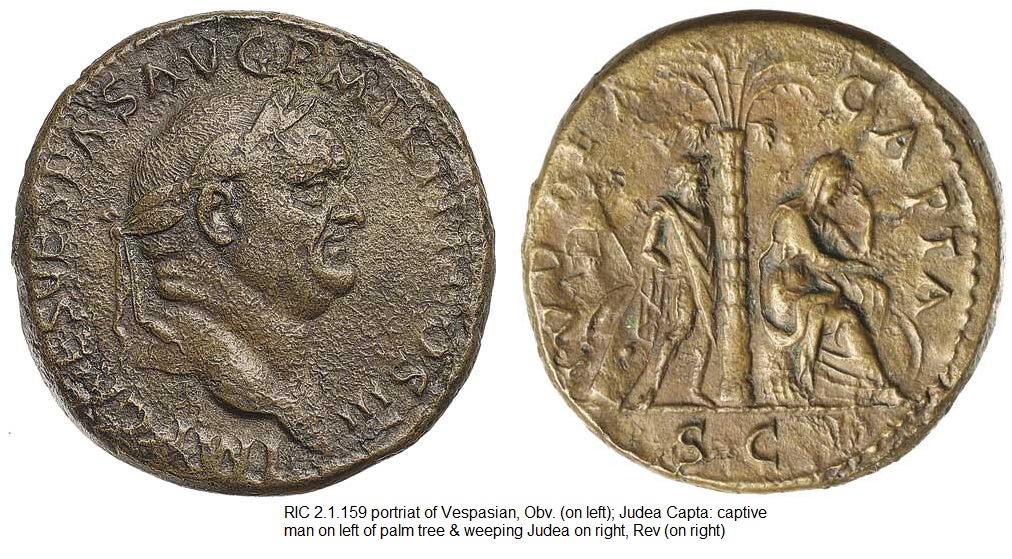
2022 NEWS
6th Australasian Egyptology Conference
Macquarie University is hosting the 6th Australasian Egyptology Conference from Thursday 9 June until Saturday 11 June PLUS ‘Life and Times of Tutankhamun’ Day of lectures on Sunday 12 June.
Featuring two international speakers, Dimitri Laboury and Simon Connor (both Université de Liège, Belgium)who have both written extensively on Tutankhamun. Joining them will be Anna Stevens who is Assistant Director of the Amarna project working at Tell el-Amarna.
The Conference will include museum visits, a cocktail party, the chance to hear the best local and international Egyptology, and more!
Take advantage of Early Bird rates (available until 13 May) to register for one day, or all four – see https://www.mq.edu.au/research/research-centres-groups-and-facilities/groups/the-australian-centre-for-egyptology/conference
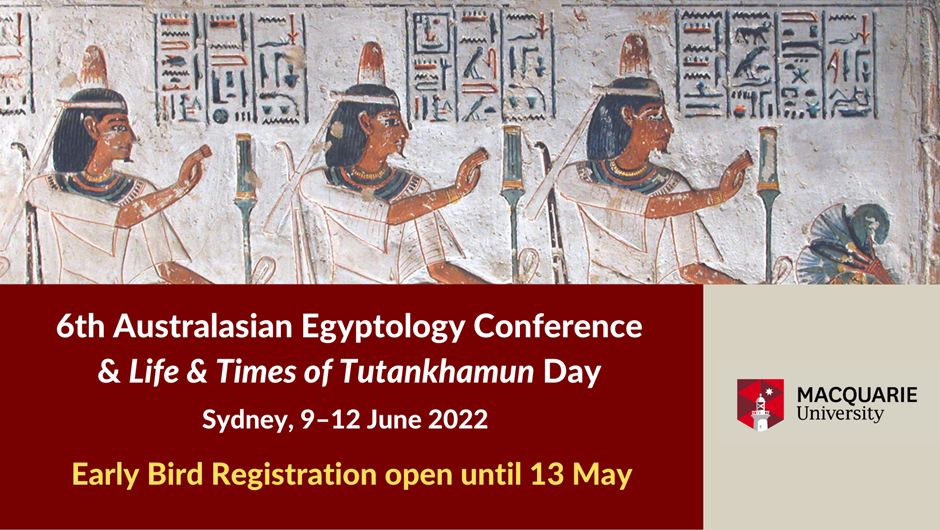
March Meeting via Zoom Thursday 10th March, 7pm (AEDT)
| Martin Shadwick, is presenting on “Brothers and Sisters in the Early Church.” “In the early church ‘brothers’ and ‘sisters’ were not confined to fellow Christians one knew personally or associated with locally. Rather, ‘brotherhood’ was a rich, multi-correspondence metaphor which both expressed and reinforced Christianity as an interconnected, worldwide fellowship. This talk will present the central elements of Martin’s MRes thesis, ‘The translocal dimension of Christian siblingship in the early church’.” Email, 24 hours before the meeting, the SSEC secretary Ms Karyn Young for the Zoom link SSEC@mq.edu.au Martin is the AFES staff team leader at the University of Newcastle, where he has engaged in student ministry since 2007. He previously studied science (BSc, Macquarie 2000) and theology (BD, MTC 2006), and last year completed a Master of Research in ancient history through Macquarie University. He’s married to Jen, and together they have four children. Martin also serves on the committee of the Gospel Workers Advocacy Group – an organisation established to assist ministry workers who have suffered mistreatment. |

June Meeting via Zoom Wednesday 9th June 7pm
Michael P Theophilos will be speaking on “Jewish Christian relations prior to 70 CE in light of the Coins of the First Jewish War” The numismatic record of the first Jewish war (66-70 AD) provides direct and specific material culture which bears on the question of Jewish Christian relation prior to 70 AD. Despite the limited textual information typically included, the benefits of coins as historical sources are well known and include known patterns of distributions and confirmed dates. This paper will investigate Jewish Christian relations in light of the numismatic record of the First Jewish Revolt and compare and contrast it with select themes in the New Testament. This will be explored along four lines of evidence, 1) linguistic 2) iconographic, 3) messianic, and 4) illocutionary intention of the materials. The presentation will be illustrated with high-definition images of the numismatic material under discussion.
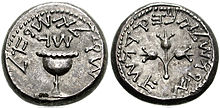
March Meeting via Zoom
Geoff Jenkins, “Luke and the Godfearers”, 16th March. Please send your request to join to Karyn Young ssec@mq.edu.au.
